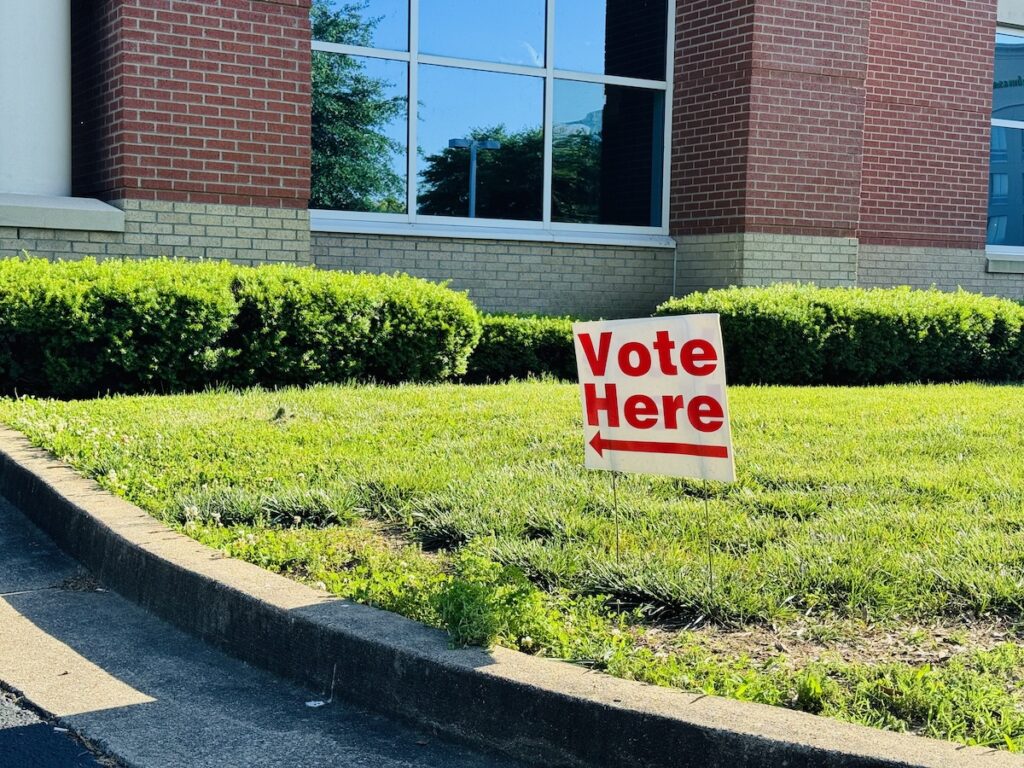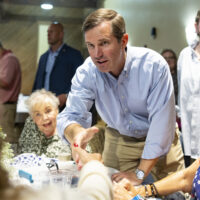Hand-wringing over American politics commonly focuses on the sharp and growing divisions between Democrats and Republicans.
Accumulating evidence indicates that voters are less likely than ever to split their ticket or vote for candidates from different parties in presidential or congressional races. Polarization over hot-button issues has spiked, as has animosity toward members of the opposite party.

Research also shows that state-level political contests have become more partisan. Results for state-level electoral contests more closely mirror presidential election results than they once did.
As political scientists who study local politics, we wanted to know: Does that same partisanship carry over to city, county and other local elections?
Controversy over partisanship in local elections
Scholars have devoted relatively little attention to local elections, but some academic research suggests that local races, too, have become increasingly partisan. That would indicate that the particulars of local contests – for example, debates over housing, homelessness and public works projects – matter less in voters’ decision-making than party affiliation.
There is reason to be skeptical of these claims.
For one, the vast majority of mayoral and city council elections across the U.S. are formally nonpartisan, as are most school board elections; voters may not even know the candidates’ party identification. And contentious local issues such as where to build affordable housing may not fall neatly along partisan lines.
Further, partisan control over local governments may not matter as much to voters as it does on a national level.
That’s what many voters said in our survey research, conducted in California in 2021 and cited in our 2024 article for Urban Affairs Review. Over 60% of respondents claimed that they cast their ballots based on the candidates’ policy positions, not party affiliation. This factor far exceeded such other voting shortcuts as relying on party endorsements or the candidates’ demographic characteristics.
It is possible, of course, that the voters we surveyed only claimed to prioritize the issues over the politics because doing so is more socially desirable; it makes them seem more conscientious and thoughtful.
So we decided to test their commitment to nonpartisanship in local elections.
A survey experiment
Presented with the choice, how would voters respond in an election where the opposing party candidate was closer to their policy views than the candidate identified as being from their own party? Would they actually defect to the opposing party for this particular race?
To answer these questions, our team of three researchers at two California State University campuses conducted a survey experiment, building on the findings in our 2021 survey. In the new survey, conducted in late 2022 with 905 partisan, registered voters in California, we presented respondents with a choice between a city council candidate from their party who held policy views contrary to their own and a candidate from the other party who shared their policy preferences.
The survey focused on two highly relevant local issues: homelessness and housing. These are problems that matter to voters, and prominent California politicians within the same party have taken differing stands on them.
In the experiment, some respondents had to choose between a politician from their own party who agreed with them on one of these issues and a candidate from the opposing party who did not; this was the control group. In our separate test group, voters had to choose between a candidate from their own party who disagreed with them on one of the issues and an opposing party candidate who aligned with their views on that issue.
The experimental approach allowed us to isolate differences on these two issues from other policy matters that may have influenced their vote.
Our findings
We found that, overall, voters tend to support candidates from their own party – even when an opposite party candidate was closer to their views on salient local issues. About 60% of both Democrats and Republicans supported their party’s candidate for city council in the face of policy disagreements.
That said, 4 in 10 respondents defected from their party in this vote, prioritizing local issues – or these two local issues, at least – over partisan affiliation.
- SUBSCRIBE: Sign up for our newsletters
Indeed, under certain circumstances, most voters ditched the candidate from their political party. Fully 70% of respondents who supported a law enforcement-centered approach to homelessness, such as dismantling the highly visible encampments that have cropped up across California, would back a city council candidate from the opposite party who wanted police to clear the tent cities.
Looking deeper into the patterns from our experimental data, we found that the strength of both party ties and policy views mattered. Weak partisans were more likely to defect than strong partisans. Voters were also more likely to cross party lines if they believed homelessness and housing were very important issues or if they had more extreme policy preferences.
Party ties: Convenient but not binding
Our research complicates the common wisdom that partisanship dominates American electoral decision-making.
It suggests that Republican candidates can win in predominantly Democratic localities, and vice versa. Voters may cross party lines for politicians who take an appealing stance on local issues of serious concern, which may require breaking with party orthodoxy. Nonpartisan ballots that obscure the candidates’ party affiliation may help nudge voters toward party defection.
The implications are significant. More than 500,000 elected officials – 96% of all elected officials in the U.S. – serve at the local level, sitting on city councils, county boards of supervisors, school boards, special districts and the like.
In local politics, it turns out, a candidate’s party ties may be more of a convenience for voters than an identification that earns great loyalty. Partisanship looks less like sticking to your local sports team even when it’s having a terrible season and more like shopping at the nearest supermarket until a better one moves in.
This article is republished from The Conversation under a Creative Commons license. Read the original article.
Danielle Martin is an associate professor of political science at California State University, Sacramento.
Brian Adams is a professor of political science at San Diego State University, where he teaches courses on state and local politics, American democracy, and public policy. His research focuses on democratic practices on a local level, exploring how citizens attempt to influence local policy through direct participation and electoral behavior. In two books and over a dozen articles, he has explored issues such as how citizens discuss politics, what issues are most likely to generate citizen interest, the role of money in local elections, and the use of ballot initiatives on the local level. His most recent research examines civic engagement in local politics.
Edward L. Lascher Jr. is a professor of public policy and administration at California State University, Sacramento, where he specializes in state politics, the politics of policy making, and collaborative governance. He previously served as Interim Dean of Social Sciences and Interdisciplinary Studies at Sacramento State and director of multiple campus centers.








